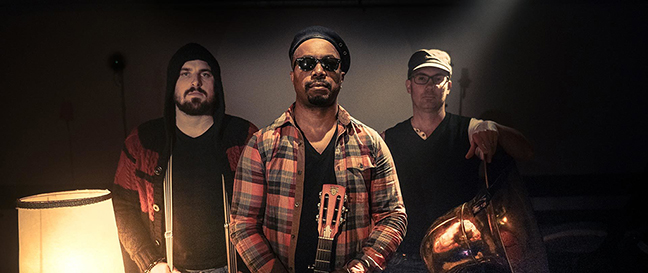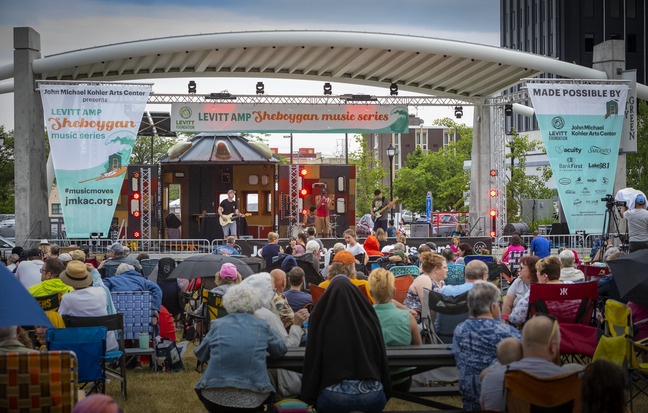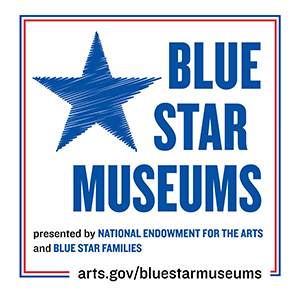Delgres
Blues/Folk

It’s as if everything I’ve done with my life until now led me to this moment. The moment singer/songwriter/composer/musician Pascal Danaë is talking about is when he realized Delgres was not just another project, but instead a turning point in his career. The Delgres band is a Caribbean blues trio, a genre mainly sung in Creole nowadays, and they came together four years ago after Pascal met drummer Baptiste Brondy and sousaphone player Rafgee. They essentially represent a personal adventure, an inner journey for which music acts as the imaginary, although vibrant, vehicle of private experience and family history. More broadly speaking, they represent the destiny of a part of the world marked by its rootlessness and identity struggles.
Detailing the origins of Delgres, Pascal explains; “It all began with a Dobro guitar. I was in Amsterdam when I first played one. The instrument and the feeling of being far from home, as well as the impression that I was at a crossroads between different professional pathways, led me instinctively to play blues music, a style I had already touched on, although indirectly, through jazz. The Creole I learned at home and sometimes used to sing was part of things from the start.” On returning to Paris, he decided to build on this experience with some like-minded friends. He first turned to the drummer Baptiste Brondy, with whom he had worked as part of Rivière Noire. “For the bass, on the other hand, I envisioned something like a carnival band, similar to bands in the Caribbean and in New Orleans, where the sousaphone plays the main role.” After doing some research, he then contacted Rafgee, a trumpeter who studied at the Conservatoire de Paris, and who regularly plays his bass tuba in a band providing entertainment at Caribbean dances. “Rafgee knows the beguine and the quadrille better than me,” Pascal acknowledges. Furthermore, “he’s the only musician who can bring together Moussorgski and the mazurka in a Mandingo band”, an article about the band states.
The fascinating music they produce is that of a unique power trio, akin to the Black Keys and Hanni El Khatib’s work, somewhere between hypnotized rock, earthy soul and caustic garage. It is perhaps the final stage in the fertile Creole identity process, in which the philosopher Édouard Glissant believed he saw the promise of a new, less barbaric and more fraternal world.





